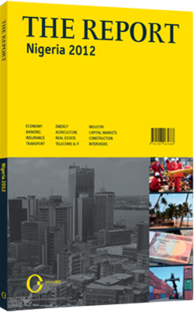Facts for visitors: Useful information for business and leisure travellers
ETIQUETTE: When conducting business in Nigeria, it is customary to shake hands and exchange greetings, asking after one’s health and family. Building a rapport is important in the business community, so rushing a greeting may be considered rude. The mutual exchange of a warm, welcoming smile is also common.
DRESS: In the urban centres of Lagos and Abuja, both Western business attire (for men and women) as well as traditional Nigerian dress, such as long flowing robes of all colours, are common. In fact, this traditional attire is generally expected for working Nigerians on a Friday. In northern Nigeria, where sharia law is in effect, more traditional Muslim attire can be found.
LANGUAGE: Nigeria’s official language is English, spoken predominantly in a pidgin dialect. There are also approximately 510 local languages, the primary of which include Hausa, Igbo and Yoruba.
SAFETY: The security situation in Lagos has improved significantly in recent years. As a result, one can safely walk during the day there. Although security in Abuja remains precarious, major incidents are infrequent.
CURRENCY: The currency is the naira, a free- floating currency. The exchange rate in early 2012 was N159:$1, N201:€1 and N251:£1. Foreign currencies can be easily exchanged at licensed exchange office in major entry points including airports and land borders.
VISA: Nigeria requires all Western visitors to obtain a visa in advance to enter the country. Citizens of the Economic Community of West African States can remain in Nigeria for up to three months without a visa. All other citizens must apply for a visa in their country of origin, provide a letter of invitation from an individual or institution in Nigeria and proof of a hotel reservation, with a return ticket out of Nigeria. For those on their first visit, most Nigerian embassies will only offer a 30-day, single-entry visa. Returning visitors will then be eligible for a longer, and often multiple-entry, visa.
TIPPING: Tipping is common in day-to-day situations such as in restaurants, hotels or in taxis. In general, tips consist of up to 5-10% of the value of the service.
ELECTRICITY: Nigeria has a 230-V, 50-Hz network. Two-pin EU and three-pin UK plugs are standard. For other types, adaptors are widely available, especially in urban areas. Due to the country’s irregular power supply, back-up generators are indispensable.
BUSINESS HOURS: The average workweek runs from Monday to Friday. Although hours vary, most businesses are open from 9am to 5pm except on Fridays, during the month of Ramadan (in the north) and around the Christmas holidays.
COMMUNICATIONS: The country code is +234. Phone numbers include area codes, such as 01 for Lagos and 09 for Abuja. Mobile phones are common and prepaid SIM cards can be bought for approximately N500 ($3.20).
Minute-recharge cards are available at local convenience stores and on most street corners. Connection quality varies on local and international calls, and the latter are more expensive. Internet access is commonplace throughout Lagos and Abuja.
TRANSPORT: With the largest population in sub- Saharan Africa, Nigeria has various transport options. Travellers can use yellow-coloured taxis during the day (though it is recommended to only use these on the islands in Lagos, and not at night). Riders should negotiate the fare prior to entering the vehicle. While there is no consensus on pricing, fares should be about N700N800 ($4.50-$5.75) for a short trip to Victoria Island and Ikoyi. The majority of travellers to Nigeria prefer to hire a car (usually including a driver), which cost upwards of N14,000 ($90) a day. If visitors wish to drive themselves, it is recommended that they obtain a Nigerian driver’s licence. Alternatives include buses and trains, but with roads and railways in questionable condition, longer trips are best made by air.
HEALTH: Visitors requiring medical attention can rely on private health facilities in major cities. Pharmacies are widespread in Lagos, including 24-hour service in many areas. It is advised to seek recommendations from one’s embassy to avoid counterfeit medication. A yellow fever vaccination is mandatory to enter Nigeria.
You have reached the limit of premium articles you can view for free.
Choose from the options below to purchase print or digital editions of our Reports. You can also purchase a website subscription giving you unlimited access to all of our Reports online for 12 months.
If you have already purchased this Report or have a website subscription, please login to continue.

